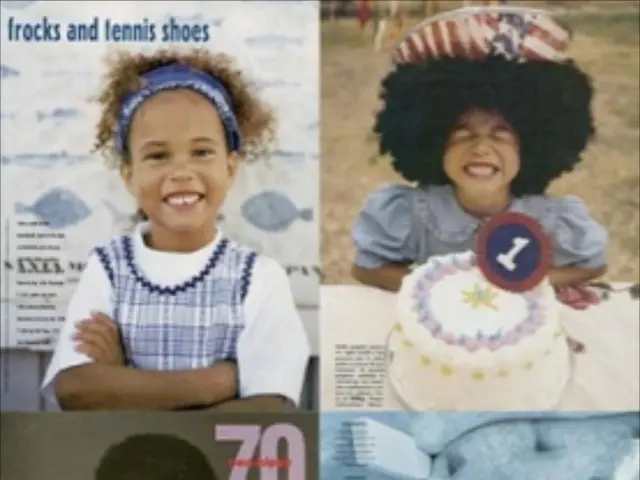Transforming Daily Parenting Challenges into Positive Moments through Radical Empathy: Top Strategies for 2024.
Radical empathy unleashes the juggling act called parenting
Parenting is a rollercoaster ride, constantly tipping the scales between work, personal life, and your little humans. When tantrums, backtalk, and sheer exhaustion loom, maintaining patience and genuine understanding can seem like an uphill battle. That's where radical empathy comes in, bringing incredible shifts to your family life, turning tumultuous days into harmonious ones.
So, what is radical empathy all about?
Radical empathy is not just a walk in someone else's shoes
It goes way beyond that. This empathy takes you into the heart of their emotional storm, embracing their feelings, and responding with genuine compassion. For parents, radical empathy means getting on the emotional wavelength of your children, understanding their struggles, and needs on a level that transcends surface-level interactions.
In this fast-paced world, genuine emotional connections may often take a back seat to technology and work commitments. But radical empathy offers the antidote to the growing disconnect between parents and kids. By prioritizing empathy, parents can build safe spaces where children can express themselves freely and feel heard, understood, and valued.
Empathy vs Sympathy: The key difference lies in the connection
Confusing empathy with sympathy is common, but the two are not the same. Sympathy, although important, often carries the undertones of pity. Empathy, on the other hand, embraces shared emotions, stepping into your child's shoes to truly understand their world from their perspective. This difference is paramount because empathetic parenting is all about partnering with your child, emotionally, rather than observing from a distance.
Radical empathy is essential for a rock-solid parent-child bond. Young children heavily rely on parents for emotional regulation. By responding empathetically to outbursts and emotional distress, parents help their children learn to navigate complex feelings. The emotional bond deepens as children feel seen and valued, creating an everlasting sense of security.
Radical empathy turns the tide for children's emotional intelligence
Experiencing empathy from their parents encourages kids to develop strong emotional awareness, self-regulation, and empathy for others. It instills the belief that emotions are valid and manageable, which is instrumental for navigating social situations and relationships as they grow. Radical empathy gives children the freedom to express themselves without fear of judgment, fostering self-confidence and resilience.
Breaking the chains of negative parenting cycles with radical empathy
Parenting, unconsciously, mirrors the patterns we experienced during our childhood. If past experiences leave you with authoritarian or emotionally distant parenting styles, radical empathy empowers you to break free from these cycles. It encourages a shift in perspective, enabling parents to pause, reflect, and respond with understanding, instead of reacting out of frustration or introducing punitive approaches. This emotional attunement is the foundation for healthier, more nurturing parent-child relationships.
See things through your child's eyes and shift your perspective
The cornerstone of radical empathy is the ability to witness the world through your child's eyes. Their limited understanding of emotions and their unique perspectives necessitate a different approach from adults. When a tantrum feels like a mountain, take a step back and try to see the situation from their perspective. Recognize the underlying causes, and respond with empathy rather than frustration.
Active Listening: The foundation of radical empathy
Empathy thrives on active listening. Beyond simply hearing your child's words, active listening involves engaging with their emotions and body language. When your child opens up to you-whether it's anger, sadness, or excitement-give them your full attention. Maintain eye contact, ask clarifying questions, and validate their feelings. Active listening offers children a sense of belonging and models important skills for them to adopt.
Emotions matter: Recognizing and validating feelings
Children are often unable to understand or articulate their emotions. As a radically empathetic parent, your role is to help them recognize and validate those feelings. Instead of dismissing their sadness or frustration with phrases like "It's not a big deal" or "Stop crying," acknowledge their emotions by saying things like, "I see that you're really upset right now." Affirming their emotions fosters a feeling of support as they navigate their feelings.
Navigating tantrums with grace and empathy
Tantrums are a common part of parenting. When these emotional outbursts occur at inconvenient times or in public places, engaging radical empathy offers a new perspective. Clarify the root cause, whether it's frustration, tiredness, or hunger, and respond with understanding rather than anger or impatience. This approach turns tantrum moments into opportunities for emotional growth, strengthening the parent-child bond.
In the next part, we delve deeper into the impact of radical empathy on tough conversations with teenagers, transforming power struggles into bonding opportunities, and reducing daily parenting stress. By the end, you'll have valuable insights on how radical empathy can alleviate struggles and create a deeply fulfilling parent-child relationship.
Practicing radical empathy with teenagers: Empathy without enabling
When children evolve into teenagers, the parent-child relationship becomes more complex, often dotted with frequent conflicts and intense emotions. Navigating these conversations can leave parents feeling like they're walking a tightrope-balancing authority and self-expression. Radical empathy provides a solution, shifting the approach from defensive to inquisitive and understanding.
Instead of entering these conversations with a critical mindset, empathy calls for curiosity and a genuine desire to understand. Teenagers are often grappling with emotions they can't articulate. When they feel truly understood, they open up, allowing parents to guide them effectively and foster trust.
Turning power struggles into bonding opportunities
Power struggles are an unavoidable part of parenting. Resolving them in a way that strengthens the bond between parent and child calls for a shift of focus from control to connection.
Radical empathy helps you understand the underlying emotions driving your child's behavior. Instead of reacting out of frustration or adopting punitive approaches, respond with understanding and emotional attunement. This approach transforms power struggles into opportunities for connection, paving the way for a stronger parent-child relationship.
Empathy eases your parenting stress
Parenting stress is inevitable yet manageable with radical empathy. By fostering a peaceful and cooperative family environment, you can ease stress and discomfort. The focus on understanding versus control shifts the energy in your household, making it a home where everyone feels valued and safe.
Cultivating patience and compassion for yourself
Self-compassion is vital for the success of radical empathy. Parents often put tremendous pressure on themselves, setting unrealistic expectations, and feeling guilt or shame when they fall short. Practicing radical empathy encourages parents to extend the same understanding and compassion to themselves that they offer their children.
Radical empathy calls for taking time for self-care, learning from mistakes, and embracing a mindset that acknowledges that being a parent is a journey with ups and downs.
Practicing self-care in empathy
Reflecting on what you need to feel supported and reframing the way you respond to stress are two key components of self-care in empathy. When emotional exhaustion threatens to derail your empathy, focus on self-care to recharge and maintain the connection with your child. Take a step back, practice mindfulness, seek support when needed, and remember that you're not perfect, but you're doing your best.
Disciplining with empathy: Balancing structure and compassion
Discipline is a vital component of parenting but too often, it finds itself in conflict with fostering a positive, supportive relationship. Radical empathy offers a solution, emphasizing understanding and connection in place of traditional punishment. This approach requires addressing behavior without shaming or blaming the child.
For example, instead of saying, "Why did you do that? You're in trouble!", try saying, "I see that you're upset. Can you help me understand what's going on?" This response opens the door to meaningful communication and the opportunity to guide your child towards constructive behavior.
Positive reinforcement and punishment in empathetic parenting
Positive reinforcement is an essential component of empathetic parenting. Rather than focusing solely on correcting bad behavior, radical empathy encourages parents to acknowledge and celebrate positive actions. This approach is more effective in shaping children's behavior because it instills a sense of value and belonging.
Cultivating understanding without enabling
There's a fine line between empathy and enabling, and it's crucial to find the balance. Setting boundaries and maintaining structure while remaining attuned to your child's emotions is essential for raising emotionally intelligent children who understand the importance of responsibility.
Adapting the consequences of misbehavior to the situation is a great way to communicate boundaries while considering your child's feelings. For instance, instead of grounding or taking away privileges, find alternative ways to help your child understand the impact of their actions, such as projects or discussions that center on emotions, empathy, and problem-solving.
Setting empathetic boundaries with unconditional love
Establishing boundaries and creating expectations while keeping the lines of communication open is the key to an effective, loving parent-child relationship. Expressing the reasons behind the rules and the importance of them can help children understand the value of structure while fostering a sense of trust and emotional connection.
In the next section, we discuss fostering empathy in children, guided by the example you set as a parent.
Raising empathetic kids: Walk the walk, talk the talk
Children learn and grow by observing the behavior of their parents. By demonstrating empathy in everyday interactions, you set an example that your child internalizes as they grow. Make empathy a habit, and encourage your child to adopt it too.
FAQs
1. What is radical empathy in parenting?Radical empathy is an extension of empathy that involves deep understanding and genuine connection with your child's feelings. This practice takes empathy a step further, shift your perspective, and engage actively to connect on a profound level.
2. How can I apply radical empathy during meltdowns?During meltdowns, adopt an empathetic attitude, focusing on understanding the underlying cause rather than reacting out of frustration. Offer comfort, and explore the root cause together to resolve the issue.
3. Can empathy help improve power struggles at home?Absolutely. Empathy can turn power struggles into bonding opportunities by focusing on understanding the child's emotions rather than imposing authority.
4. Does radical empathy mean being too permissive?No! Radical empathy doesn't mean being permissive. It's about understanding the child's emotional needs while maintaining open communication and setting clear boundaries.
5. How does empathy contribute to a child's social development?Empathy encourages emotional intelligence, helping children navigate complex social situations and foster healthier relationships.
6. How can I help my children develop empathy for their siblings?Encourage open communication, and help your children understand each other's perspectives, and contribute to conflict resolution. Involve them in problem-solving, and use sibling rivalry as opportunities to develop empathy.
Conclusion: Radical Empathy-The Empathetic Advantage for Parents
The life-changing power of radical empathy lies in its ability to forge profound connections between parents and children. Mastering this powerful tool equips parents with the insight and emotional intelligence to truly understand their children's needs, and in turn, create a lasting, loving bond. So, embrace radical empathy and watch the magic unfold in your family.
- Radical empathy transcends simply walking in someone else's shoes; it delves into the heart of their emotional storm and responds with genuine compassion, especially important in parent-child relationships.
- Empathy is distinct from sympathy because it embraces shared emotions, stepping into a child's shoes to truly understand their world from their perspective, which is crucial for partnering with them emotionally.
- Radical empathy is essential for a strong parent-child bond as it helps children learn to navigate complex feelings, develop emotional awareness, and self-regulation, encouraging empathy for others.
- Radical empathy empowers parents to break free from negative parenting cycles by encouraging a shift in perspective, enabling them to pause, reflect, and respond with understanding instead of reacting out of frustration or introducing punitive approaches.
- By adopting radical empathy, parents can build safe spaces where children can express themselves freely and feel heard, understood, and valued, deepening the emotional bond and fostering a sense of security.
- Active listening is the foundation of radical empathy, focusing on engaging with children's emotions and body language, validating their feelings, and offer a sense of belonging and model essential skills for them to adopt.








